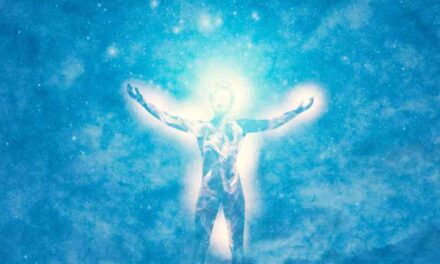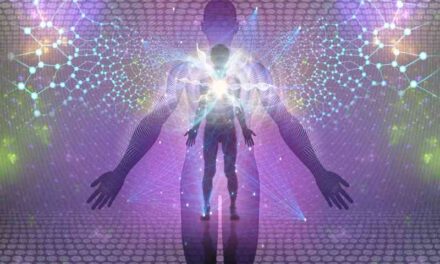In this dialogue, a questioner seeks to understand the difference between realization and liberation. The questioner describes realization as a temporary experience of peace and unity with substance and essence. They describe liberation as a permanent state of being in that wonderful state. The questioner wonders if liberation means abandoning the body.
The guru, Maharaj, asks what is wrong with the body. The questioner replies that the body is weak and creates needs and cravings that limit oneself. Maharaj responds by saying that liberation is self-liberating from false and self-imposed ideas, and it is not contained in some particular experience, however glorious. Maharaj emphasizes that physical expressions should be limited, but liberation is always of the self, and one is always free to be conscious. Nobody can take this away from them.
The questioner asks if liberation lasts forever, and Maharaj responds that all experiences are time-bound. Whatever has a beginning must have an end. The questioner concludes that liberation does not exist in their sense of the word, but Maharaj disagrees. He emphasizes that one is always free and conscious to be conscious, and nobody can take this away from them. Maharaj advises the questioner to turn away from the experience to the experiencer and realize the full import of the only true statement one can make, “I am.”
The questioner wonders how to achieve this, and Maharaj advises that there is no ‘how’ here. One should keep in mind the feeling ‘I am’, merge in it until the mind and feeling become one. Through repeated attempts, one will stumble on the right balance of attention and affection, and the mind will be firmly established in the thought-feeling ‘I am.’ Whatever one thinks, says, or does, this sense of immutable and affectionate being remains as the ever-present background of the mind.
The questioner asks if this is liberation, and Maharaj says he calls it normal. Maharaj asks why one should consider it so unusual to expect the immediate destruction of the body. He emphasizes that there is nothing wrong with being, knowing, and acting effortlessly and happily, and one should correct their attitude to their body and leave it alone. One should not pamper or torture it but keep it going most of the time below the threshold of conscious attention.
The questioner admits that the memory of their wonderful experiences haunts them and they want them back. Maharaj advises that because they want them back, they cannot have them. The state of craving for anything blocks all deeper experiences. Maharaj emphasizes that nothing of value can happen to a mind that knows exactly what it wants. Nothing the mind can visualize and want is of much value.
The questioner wonders what is worth wanting, and Maharaj advises that one should want the best, the highest happiness, and the greatest freedom. Desirelessness is the highest bliss. The questioner disagrees and says they want the freedom to fulfill their longings. Maharaj says they are already free to fulfill their longings, but there are obstacles that leave them frustrated. Maharaj advises that one should overcome them.
The questioner admits that they cannot because they are too weak. Maharaj asks what makes them weak and what weakness is. Maharaj says that one scatters their energy over so many contradictory desires and pursuits. They do not have an infinite supply of energy. Maharaj advises that one should desire the good of all, and the universe will work with them. But if one wants pleasure, one must earn it the hard way. Before desiring, they must deserve it.
The questioner asks if they are on the right track by studying philosophy, sociology, and education. Maharaj says that to earn a livelihood, specialized knowledge is needed.
Q: How can action lead to detachment?
M: Don’t ask me. Find out. When you know that your expectations are not justified by your deeds, why keep on desiring and hankering? Your sense of injustice, however slight, creates tensions and frustrations which are neither necessary nor beneficial and which cloud the pure and peaceful witness.
There is no way to peace — peace is the way. Just stop making noise, and you will be at peace. The mind can be brought to silence through assertion and negation, by letting go of the senseless and seeking the meaningful. Thus enriched by the clarity of thought, and purity of heart, you will find that the body will become a useful servant, not a tyrannical master.
Q: Is self-realization the end of all effort? M: In a way it is, but in fact, it is not. After self-realization, the work of perfecting the instrument and the user continues, but it becomes easy and quick. Conflicts and contradictions are reduced to a minimum, if not altogether eliminated. Life becomes deeper, richer, happier, and more efficient. It is like having a lamp in the palm of your hand — the lamp was always there, but now you are no longer in darkness.
Q: Who gains by self-realization? M: There is no gain. The man who believes that he gains nothing. The man who believes that there is nothing to gain gains everything. Just as a man who seeks a flower, finds a mere flower, whereas a man who seeks the scent, finds the flower. Q: What is the scent in the search for reality?
M: It is the scent of reality that makes you seek. Without it, you would not move. It is also the scent of reality that makes you recognize it when you find it. But the intoxicating sweetness of the flower makes you forget the search, and even the finder, for a moment. It is only when you return to your senses, that you realize something of what has happened to you.
Q: Who returns to what senses? M: The self returns to its senses. The mind is of the senses, the self is beyond the senses. Just as the self (swarupa) is beyond the mind (swabhava), so is the Supreme (Swarat) beyond the self. It is the realization (anubhava) that brings you to the Supreme.





